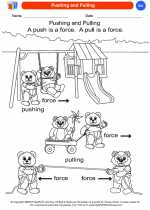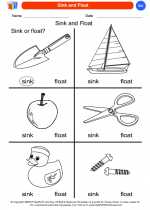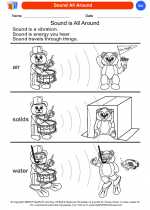Lakes
A lake is a large body of water that is surrounded by land. It is usually deeper than a pond and can be freshwater or saltwater. Lakes are formed in a variety of ways, including the melting of glaciers, volcanic activity, and the movement of tectonic plates.
Characteristics of Lakes
- Size: Lakes can vary in size from small, shallow lakes to large, deep lakes.
- Water Source: Lakes are often fed by rivers, streams, or underground springs.
- Wildlife: Lakes are home to a diverse range of plants and animals, including fish, birds, and aquatic plants.
- Human Use: Many lakes are used for recreational activities such as swimming, boating, and fishing.
Formation of Lakes
Lakes can be formed by a variety of geological processes, including:
- Glacial Activity: The movement of glaciers can carve out depressions in the land, which fill with water to form lakes.
- Volcanic Activity: Volcanic eruptions can create craters that fill with water to form volcanic lakes.
- Tectonic Activity: The shifting of tectonic plates can create depressions in the Earth's crust that fill with water.
Study Guide
Here are some key points to remember about lakes:
- What is a lake?
- A large body of water surrounded by land.
- How are lakes formed?
- Through processes such as glacial activity, volcanic activity, and tectonic activity.
- What are some uses of lakes?
- Recreational activities, wildlife habitat, and as a source of drinking water.
[Lakes] Related Worksheets and Study Guides:
.◂Science Worksheets and Study Guides Kindergarten. Pushing, Moving, Pulling
Coloring Worksheet How heavy
How heavy  Coloring Worksheet
Coloring Worksheet How heavy
How heavy  Coloring Worksheet
Coloring Worksheet How Things Move
How Things Move  Coloring Worksheet
Coloring Worksheet How Things Move
How Things Move  Coloring Worksheet
Coloring Worksheet Light and Heat
Light and Heat  Coloring Worksheet
Coloring Worksheet Light and Heat
Light and Heat  Coloring Worksheet
Coloring Worksheet Magnets
Magnets  Coloring Worksheet
Coloring Worksheet Magnets
Magnets  Coloring Worksheet
Coloring Worksheet Pushing and Pulling
Pushing and Pulling  Coloring Worksheet
Coloring Worksheet Pushing and Pulling
Pushing and Pulling  Coloring Worksheet
Coloring Worksheet Simple Machines
Simple Machines  Coloring Worksheet
Coloring Worksheet Simple Machines
Simple Machines  Coloring Worksheet
Coloring Worksheet Sink and Float
Sink and Float  Coloring Worksheet
Coloring Worksheet Sink and Float
Sink and Float  Coloring Worksheet
Coloring Worksheet Sound All Around
Sound All Around  Coloring Worksheet
Coloring Worksheet Sound All Around
Sound All Around  Coloring Worksheet
Coloring Worksheet Up and Down
Up and Down  Coloring Worksheet
Coloring Worksheet Up and Down
Up and Down  Coloring Worksheet
Coloring Worksheet Wheels
Wheels  Coloring Worksheet
Coloring Worksheet Wheels
Wheels 

 Coloring Worksheet
Coloring Worksheet
 Coloring Worksheet
Coloring Worksheet
 Coloring Worksheet
Coloring Worksheet
 Coloring Worksheet
Coloring Worksheet
 Coloring Worksheet
Coloring Worksheet
 Coloring Worksheet
Coloring Worksheet
 Coloring Worksheet
Coloring Worksheet
 Coloring Worksheet
Coloring Worksheet
 Coloring Worksheet
Coloring Worksheet
 Coloring Worksheet
Coloring Worksheet
 Coloring Worksheet
Coloring Worksheet
 Coloring Worksheet
Coloring Worksheet
 Coloring Worksheet
Coloring Worksheet
 Coloring Worksheet
Coloring Worksheet
 Coloring Worksheet
Coloring Worksheet
 Coloring Worksheet
Coloring Worksheet
 Coloring Worksheet
Coloring Worksheet
 Coloring Worksheet
Coloring Worksheet
 Coloring Worksheet
Coloring Worksheet
